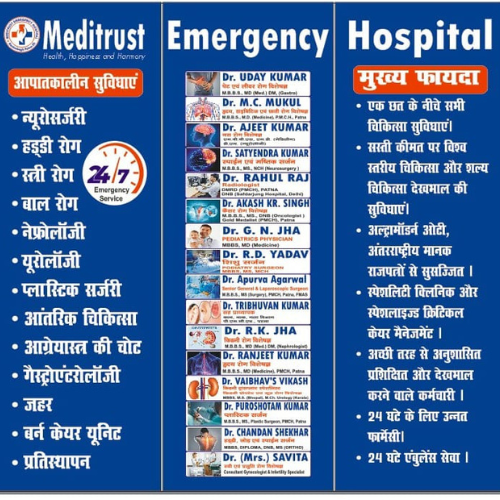
Our Services
The great place of medical hospital center.
To be the premier medical hospital center, renowned for exceptional patient care and cutting-edge research. We strive to set the highest standards in medical excellence, foster innovation in healthcare, and provide a nurturing environment for patients and staff. Our commitment is to transform lives through compassionate care and advanced medical practices.
- ........
- ..........
- ..................
- ..............
WE OFFER SERVICES
We offer support in multiple areas

CARDILOGY
Cardiology is the medical specialty focused on diagnosing and treating heart conditions, including heart disease, arrhythmias, and heart failure.

Obs
Obstetrics is the medical specialty dealing with pregnancy, childbirth, and the postpartum period, ensuring the health and well-being of both mother and baby.

CARDILOGY
Cardiology is the medical specialty focused on diagnosing and treating heart conditions, including heart disease, arrhythmias, and heart failure.

Obs
Obstetrics is the medical specialty dealing with pregnancy, childbirth, and the postpartum period, ensuring the health and well-being of both mother and baby.

CARDILOGY
Cardiology is the medical specialty focused on diagnosing and treating heart conditions, including heart disease, arrhythmias, and heart failure.

Obs
Obstetrics is the medical specialty dealing with pregnancy, childbirth, and the postpartum period, ensuring the health and well-being of both mother and baby.

Gastrology
Gastrology is the branch of medicine that focuses on the study, diagnosis, and treatment of disorders related to the stomach and digestive system.

Orthology
Orthology is the study of orthologous genes, which are genes in different species that originated from a common ancestral gene and retain the same function.
Common Queries
Frequently Asked Questions
For emergency treatment, it is typically not necessary to book an appointment in advance. Instead, you should go directly to the nearest emergency room (ER) or call emergency services for immediate assistance.
Yes, hospitals typically use anesthetics during operations to ensure patients are comfortable and pain-free. There are different types of anesthetics, including:
Hospital neurologists typically specialize in various areas within neurology, including: (1) General Neurology: Diagnosis and treatment of a wide range of neurological disorders. (2)Stroke and Cerebrovascular Diseases: Focus on stroke prevention, treatment, and rehabilitation. (3) Epilepsy: Management and treatment of seizure disorders. (4) Neurodegenerative Diseases: Specialization in conditions like Alzheimer's, Parkinson's, and other dementias. (5) Neuromuscular Disorders: Diagnosis and management of conditions like myasthenia gravis and neuropathies. (6) Headache Medicine: Treatment of chronic headaches and migraines. (7) Sleep Disorders: Management of sleep-related issues, including sleep apnea and insomnia. (8) Pediatric Neurology: Focus on neurological conditions in children. If you need more detailed information about specific neurologists or services, it’s best to check the hospital's website or contact them directly.
Parathyroid scanning typically involves a few key steps to evaluate the parathyroid glands, often used to diagnose conditions like primary hyperparathyroidism. Here’s a general overview of the procedure: (1) Preparation: Patients may be instructed to avoid certain medications or supplements prior to the scan. Fasting might also be required for a specific period. (2) Radiopharmaceutical Injection: A small amount of a radioactive tracer (usually technetium-99m) is injected into a vein. This tracer helps visualize the parathyroid glands. (3) Imaging: After injection, imaging is performed using a gamma camera. This typically occurs at various intervals to capture the distribution of the tracer. (4) Delayed Imaging: Sometimes, delayed imaging is done after a few hours to enhance the quality of the images. (5) Interpretation: A nuclear medicine physician or radiologist interprets the images to identify any abnormal parathyroid glands. (6) Follow-Up: Results are discussed with the patient, and further diagnostic or treatment options may be recommended based on the findings. For specific protocols or additional information, it’s best to consult the hospital directly.
Orthopedic care involves a comprehensive approach to treating patients with musculoskeletal issues. Here’s how doctors and staff typically take care of orthopedic patients: (1) Initial Assessment: (2) Comprehensive evaluations, including medical history, physical exams, and diagnostic imaging (like X-rays or MRIs), to determine the condition. Personalized Treatment Plans: (3) Developing individualized treatment plans based on the specific diagnosis, which may include non-surgical options (like physical therapy or medication) or surgical interventions. Multidisciplinary Approach: (4) Collaborating with various specialists, including physical therapists, occupational therapists, and pain management specialists, to provide comprehensive care. Patient Education: (5) Educating patients about their condition, treatment options, and rehabilitation processes to empower them in their care. Preoperative Care: (6) Preparing patients for surgery through preoperative assessments, instructions, and addressing any concerns. Surgical Care: (7) Performing surgeries using the latest techniques and technologies, ensuring patient safety and optimal outcomes. Postoperative Care: (8) Monitoring recovery, managing pain, and providing guidance on rehabilitation and physical therapy. Follow-Up: (9) Regular follow-up appointments to track progress, address complications, and adjust treatment plans as necessary. Supportive Services: Providing access to resources like counseling, nutrition guidance, and rehabilitation programs to support overall recovery. Each orthopedic department may have specific protocols, so it’s always best to check directly with the hospital for detailed information.
